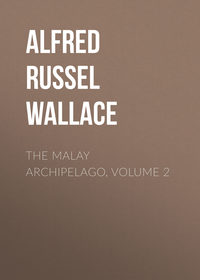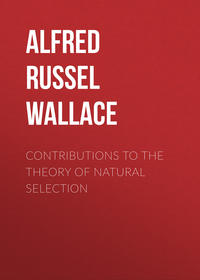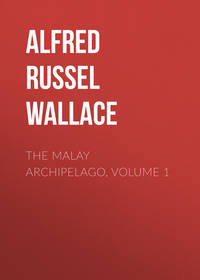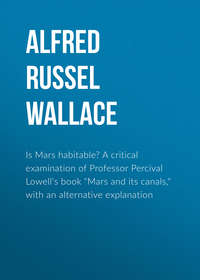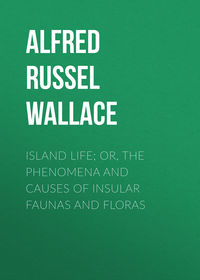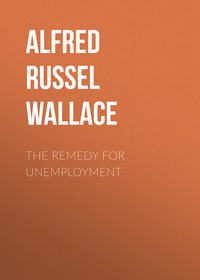 полная версия
полная версияTravels on the Amazon
On crossing the Rio Negro from the city of Barra, we entered into a tract of this description. Our canoe was forced under branches and among dense bushes, till we got into a part where the trees were loftier, and a deep gloom prevailed. Here the lowest branches of the trees were level with the surface of the water, and were many of them putting forth flowers. As we proceeded we sometimes came to a grove of small palms, the leaves being now only a few feet above us, and among them was the marajá, bearing bunches of agreeable fruit, which, as we passed, the Indians cut off with their long knives. Sometimes the rustling of leaves overhead told us that monkeys were near, and we would soon perhaps discover them peeping down from among the thick foliage, and then bounding rapidly away as soon as we had caught a glimpse of them. Presently we came out into the sunshine, in a grassy lake filled with lilies and beautiful water-plants, little yellow bladder-worts (Utricularia), and the bright-blue flowers and curious leaves with swollen stalks of the Pontederias. Again in the gloom of the forest, among the lofty cylindrical trunks rising like columns out of the deep water: now a splashing of falling fruit around us would announce that birds were feeding overhead, and we could discover a flock of paroquets, or some bright-blue chatterers, or the lovely pompadour, with its delicate white wings and claret-coloured plumage; now with a whirr a trogon would seize a fruit on the wing, or some clumsy toucan make the branches shake as he alighted.
But what lovely yellow flower is that suspended in the air between two trunks, yet far from either? It shines in the gloom as if its petals were of gold. Now we pass close by it, and see its stalk, like a slender wire a yard and a half long, springing from a cluster of thick leaves on the bark of a tree. It is an Oncidium, one of the lovely orchis tribe, making these gloomy shades gay with its airy and brilliant flowers. Presently there are more of them, and then others appear, with white and spotted and purple blossoms, some growing on rotten logs floating in the water, but most on moss and decaying bark just above it. There is one magnificent species, four inches across, called by the natives St. Ann's flower (Flor de Santa Anna), of a brilliant purple colour, and emitting a most delightful odour; it is a new species, and the most magnificent flower of its kind in these regions; even the natives will sometimes deign to admire it, and to wonder how such a beautiful flower grows "atóa" (uselessly) in the Gapó.
At length, after about eight hours' paddling, we came out again into the broad waters of the Solimões. How bright shone the sun! how gay flowed the stream! how pleasant it was again to see the floating grass islands, and the huge logs and trees, with their cargoes of gulls sitting gravely upon them! These, with the white-leaved and straggling umboöbas (Cecropia) give an aspect to the Amazon quite distinct from that of the Rio Negro, independently of their differently-coloured waters. Now, however, there was no land to be reached, and we feared we should have to sup on farinha and water, but luckily found a huge floating trunk fast moored amongst some grass near the side, and on it, with the assistance of a few dead twigs, we soon made a fire, roasted our fish, and boiled some coffee. But we had intruded on a colony of stinging ants, who, not liking the vicinity of fire, and not choosing to take to the water, swarmed into our canoe and made us pay for our supper in a very unpleasant manner. Dusk soon came on, and we had to stay for the night; but the mosquitoes made their presence known, and we lay uncomfortable and feverish till the morning. By the next night we had reached the mouth of the small stream that leads us to Manaquery, and had few mosquitoes to annoy us. In the morning we went on, and soon plunged again into the Gapó, passing through some small lakes so choked up with grass that the canoe could hardly be forced over it. Again we emerged into the igaripé—here about a quarter of a mile wide—and at ten in the morning reached Manaquery.
The estate is situated on the south side of the Solimões, about a hundred miles above its junction with the Rio Negro, The whole tract of country round it consists of igaripés, or small streams, lakes, gapó, and patches of high and dry land, so scattered and mixed together that it is very difficult to tell whether any particular portion is an island or not. The land, for a short distance on the banks of the stream, rises in an abrupt, rocky cliff, thirty or forty feet above high-water mark: the rocks are of a volcanic nature, being a coarse and often vitreous scoria. On ascending by some rude steps, I found myself in a flat grassy meadow, scattered over with orange-trees, mangoes, and some noble tamarind and calabash trees, and at the back a thicket of guavas.
Cattle and sheep were grazing about, and pigs and poultry were seen nearer the house. This was a large thatched shed, half of which contained the cane-mill, and was only enclosed by a railing instead of a wall; the other half had coarse mud walls, with small windows and thatch shutters. The floor was of earth only, and very uneven, yet here resided Senhor Brandão and his daughter, whom I had met at Barra. The fact was that some ten or twelve years before, during the Revolution, a party of Indians burnt down his house, and completely destroyed his garden and fruit-trees, killing several of his servants and cattle, and would have killed his wife and children, had they not, at a moment's notice, escaped to the forest, where they remained three days, living on Indian corn and wild fruits. Senhor B. was at the time in the city, and while the Revolution lasted, which was several years, he was glad to have his family with him in safety, and could not think of rebuilding his house. Afterwards he was engaged as Delegarde de Policia for some years, and he had now only just returned to live on his estate with one unmarried daughter, and of course had plenty to do to get things a little in order. His wife being dead, he did not feel the pleasure he had formerly done in improving his place, and it is, I think, not improbable that, after having lived here a few years, he will get so used to it that he will think it quite unnecessary to go to the expense of rebuilding his house. Still it seemed rather strange to see a nicely-dressed young lady sitting on a mat on a very mountainous mud-floor, and with half-a-dozen Indian girls around her engaged in making lace and in needlework. She introduced me to an elder married sister who was staying with them, and soon Senhor B. came in from his cane-field, and heartily welcomed me. About twelve we sat down to dinner, consisting of tambakí, the most delicious of fish, with rice, beans, and Indian-meal bread, and afterwards oranges ad libitum.
I stayed here nearly two months, enjoying a regular country life, and getting together a tolerable collection of birds and insects.
In a few days a hunter I had engaged in Barra arrived, and forthwith commenced operations. In the afternoon he generally brought me some birds or monkeys, which were very plentiful. We rose about half-past five, and by six had a cup of hot coffee; I then sat down to skin birds, if any had been brought late over-night, or, if not, took my gun and walked out in search of some. At seven or half-past we had a basin of Indian-meal porridge, or chocolate, with new milk, as a sort of breakfast. At twelve punctually we dined, the standing dish being tambakí, varied occasionally with fowl, cow-fish, deer, or other game. At four we had another cup of coffee, with biscuit or fruit, and at seven we took supper of fish like our dinner, if the fisherman had arrived. In the morning, for a couple of hours, I generally went with my net in search of insects. Several rare butterflies were found sitting on the river's side, on the margin of mud left by the retiring waters. Small toucans or araçaris of several species were very abundant the rarest and most beautiful being the "curl-crested," whose head is covered with little glossy curls of a hard substance, more like quill or metallic shavings than feathers. These are at times plentiful, but did not appear till some weeks later than the other species, when I was at last rewarded for my patience by obtaining several beautiful specimens.
The common black vultures were abundant, but were rather put to it for food, being obliged to eat palm-fruits in the forest when they could find nothing else. Every morning it was an amusing sight to see them run after the pigs the moment they got up, three or four following close at the heels of each animal, for the purpose of devouring its dung the moment it was dropped. The pigs seemed to be very much annoyed at such indecent behaviour, and would frequently turn round and take a run at the birds, who would hop out of the way or fly a short distance, but immediately resume their positions as soon as the pig continued his walk.
I am convinced, from repeated observations, that the vultures depend entirely on sight, and not at all on smell, in seeking out their food. While skinning a bird, a dozen of them used to be always waiting attendance at a moderate distance. The moment I threw away a piece of meat they would all run up to seize it; but it frequently happened to fall in a little hollow of the ground or among some grass, and then they would hop about, searching within a foot of it, and very often go away without finding it at all. A piece of stick or paper would bring them down just as rapidly, and after seeing what it was they would quietly go back to their former places. They always choose elevated stations, evidently to see what food they can discover; and when soaring at an immense height in the air, they will descend into the forest where a cow has died or been killed, long before it becomes putrid or emits any strong smell. I have often wrapped a piece of half-putrid meat in paper and thrown it to them, and even then, after hopping up to it, they will retire quite satisfied that it is only paper, and nothing at all eatable.
Senhor B. had two fine sows, very fat, and each was expected to bring forth a litter of pigs in a few days. There were no pig-sties or sheds of any kind; and all animals retire into the forest on such occasions, and in a few days return with their young family, just as cats do with us. These sows had both disappeared for some days, and had not returned, and we began to be afraid that a jaguar which had been heard near the house, and whose track had been seen, had destroyed them. A search was accordingly made, and the remains of a sow were discovered in a thicket not far from the house. The next night we heard the jaguar roaring within fifty yards of us, as we lay in our hammocks in the open shed; but there being plenty of cattle, pigs, and dogs about, we did not feel much alarmed. Presently we heard a report of a gun from an Indian's cottage near, and made sure the animal was dead. The next morning we found that it had passed within sight of the door, but the man was so frightened that he had fired at random and missed, for there are some Indians who are as much cowards in this respect as any one else. For two or three days more we heard reports of the animal at different parts of the estate, so my hunter went out at night to lie in wait for it, and succeeded in killing it with a bullet. It was an onça of the largest size, and was believed to have killed, besides the sow, a cow which had disappeared some weeks previously.
The weather was now very dry: no rain had fallen for some time; the oranges were fully ripe, and the grass, so green and fresh when I arrived, was beginning to assume a brownish-yellow tinge. Tobacco-picking had begun, and I saw the process of the manufacture as carried on here. Tobacco is sown thickly on a small patch of ground, and the young plants are then set in rows, just as we do cabbages. They are much attacked by the caterpillar of a sphinx moth, which grows to a large size, and would completely devour the crop unless carefully picked off. Old men, and women, and children are therefore constantly employed going over a part of the field every day, and carefully examining the plants leaf by leaf till the insects are completely exterminated. When they show any inclination to flower, the buds are nipped off; and as soon as the leaves have reached their full size, they are gathered in strong wicker baskets, and are laid out in the house or a shed, on poles supported by uprights from the floor to the ceiling. In a few days they dry, and during the hot days become quite crisp; but the moisture of the night softens them, and early in the morning they are flaccid. When they are judged sufficiently dry, every leaf must have the strong fibrous midrib taken out of it. For this purpose all the household—men, women, and children—are called up at four in the morning, and are set to work tearing out the midrib, before the heat of the day makes the leaves too brittle to allow of the operation. A few of the best leaves are sometimes selected to make cigars, but the whole is generally manufactured into rolls of two or four pounds each. The proper quantity is weighed out, and placed, regularly in layers on a table in a row about a yard long, rather thicker in the middle. Beginning at one end, this is carefully rolled up and wound round with a cord as tightly as possible. In a few days these rolls are opened out, to see if there is any tendency to heat or mould, and if all is right they are again made up with greater care. Every day they are rebound tighter and tighter, the operator sitting on the ground with the cord twisted round a post, and winding and tightening with all his strength, till at length the roll has become compressed into a solid mass about an inch in diameter, and gradually tapering towards each end. It is then wound closely from end to end with a neat strip of the rind of the Uarumá (a water-rush), and tied up in bundles of an arroba and half an arroba (thirty-two and sixteen pounds), and is ready for sale. When the tobacco is good, or has, as they term it, "much honey in it," it will cut as smooth and solid as a piece of Spanish liquorice, and can be bent double without cracking. The price varies according to the quality and the supply, from 4d. to 1s. per pound.
One day the fisherman brought us in a fine "peixe boi," or cow-fish, a species of Manatus, which inhabits the Amazon, and is particularly abundant in the lakes in this part of the river. It was a female, about six feet long, and near five in circumference in the thickest part. The body is perfectly smooth, and without any projections or inequalities, gradually changing into a horizontal semicircular flat tail, with no appearance whatever of hind limbs. There is no distinct neck; the head is not very large, and is terminated by a large mouth and fleshy lips, somewhat resembling those of a cow. There are stiff bristles on the lips, and a few distantly scattered hairs over the body. Behind the head are two powerful oval fins, and just beneath them are the breasts, from which, on pressure being applied, flows a stream of beautiful white milk. The ears are minute holes, and the eyes very small. The dung resembles that of a horse. The colour is a dusky lead, with some large pinkish-white marbled blotches on the belly. The skin is about an inch thick on the back, and a quarter of an inch on the belly. Beneath the skin is a layer of fat of a greater or less thickness, generally about an inch, which is boiled down to make an oil used for light and for cooking. The intestines are very voluminous, the heart about the size of a sheep's, and the lungs about two feet long, and six or seven inches wide, very cellular and spongy, and can be blown out like a bladder. The skull is large and solid, with no front teeth; the vertebræ extend to the very tip of the tail, but show no rudiments of posterior limbs; the fore limbs, on the contrary, are very highly developed, the bones exactly corresponding to those of the human arm, having even the five fingers, with every joint distinct, yet enclosed in a stiff inflexible skin, where not a joint can have any motion.
The cow-fish feeds on grass at the borders of the rivers and lakes, and swims quickly with the tail and paddles; and though the external organs of sight and hearing are so imperfect, these senses are said by the hunters to be remarkably acute, and to render necessary all their caution and skill to capture the animals. They bring forth one, or rarely two, young ones, which they clasp in their arms or paddles while giving suck. They are harpooned, or caught in a strong net, at the narrow entrance of a lake or stream, and are killed by driving a wooden plug with a mallet up their nostrils. Each yields from five to twenty-five gallons of oil. The flesh is very good, being something between beef and pork, and this one furnished us with several meals, and was an agreeable change from our fish diet.
As I now expected a canoe shortly to arrive, bringing me letters and remittances from England, after which I was anxious to set off for the Upper Rio Negro as soon as possible, I determined to return to Barra, and having agreed for a passage in a canoe going there, I took leave of my kind host. I must, however, first say a few words about him. Senhor José Antonio Brandão had come over from Portugal when very young, and had married early and settled, with the intention of spending his life here. Very singularly for a Portuguese, he entirely devoted himself to agriculture. He built himself a country-house at Manaquery, on a lake near the main river, brought Indians from a distance to settle with him, cleared the forest, planted orange, tamarind, mango, and many other fruit-bearing trees, made pleasant avenues, gardens, and pastures, stocked them well with cattle, sheep, pigs, and poultry, and set himself down to the full enjoyment of a country life. But about twenty years ago, while his family were yet young, disturbances and revolutions broke out, and he, as well as all natives of Portugal, though he had signed the constitution of the Empire, and was in heart a true Brazilian, became an object of dislike and suspicion to many of the more violent of the revolutionists. A tribe of Indians who resided near him, and to whom he had shown constant kindness, were incited to burn down his house and destroy his property. This they did effectually, rooting up his fruit-trees, burning his crops, killing his cattle and his servants, and his wife and family only escaped from their murderous arrows by timely flight to the forest. During the long years of anarchy and confusion which followed, he was appointed a magistrate in Barra, and was unable to look after his estate. His wife died, his children married, and he of course felt then little interest in restoring things to their former state.
He is a remarkably intelligent man, fond of reading, but without books, and with a most tenacious memory. He has taught himself French, which he now reads with ease, and through it he has got much information, though of course rather tinged with French prejudice. He has several huge quarto volumes of Ecclesiastical History, and is quite learned in all the details of the Councils, and in the history of the Reformation. He can tell you, from an old work on geography, without maps, the length and breadth of every country in Europe, and the main particulars respecting it. He is about seventy years of age, thirsting for information, and has never seen a map! Think of this, ye who roll in intellectual luxury. In this land of mechanics' institutions and cheap literature few have an idea of the real pursuit of knowledge under difficulties,—of the longing thirst for information which there is no fountain to satisfy. In his conversation there was something racy and refreshing: such an absence of information, but such a fertility of ideas. He had read the Bible in Portuguese, as a forbidden book, though the priests make no very great objection to it here; and it was something new to hear a man's opinions of it who had first read it at a mature age, and solely from a desire for information. The idea had not entered his mind that it was all inspired, so he made objections to any parts which he thought incredible, or which appeared to him to be capable of a simple explanation; and, as might have been expected, he found of his own accord confirmation of the doctrines of the religion in which he had been brought up from childhood.
On arriving at Barra, the expected canoe had not arrived, and many weeks passed wearily away. The weather was fine, but Barra is a very poor locality for making collections. Insects were remarkably scarce and uninteresting, and I looked forward anxiously to the time when I could start for some distant and more promising district. The season was very dry and hot: the thermometer, at two, every afternoon, reaching 94° and 95° in the shade, and not often sinking below 75° during the night. The lowest which I observed, just before sunrise, was 70°, and the highest in the afternoon, 96°. There was scarcely any rain during the months of July and August, so the grass about the city was completely burnt up. The river was now falling rapidly, and the sandbanks in the Amazon were, some of them, just rising above the water.
One day, Senhor Henrique made a party to go fishing, with a large drag-net, in the Solimões. We started in the afternoon in a good canoe, with a party of about a dozen, and eight or ten Indian rowers; and just before sunset, reached the mouth of the Rio Negro, and turned up into the strong and turbid waters of the Solimões. There was a bright moon, and we kept on talking and singing, while passing the narrow channels and green islands on the north side of the river which looked most picturesquely wild and solitary by the pale silvery moonlight, and amid the solemn silence of the forest. By about midnight, we reached a large sandbank, just rising out of the water. Most of the party turned up their trousers, and waded though the shallows, till they reached the bank, where they began searching for small turtles' eggs, and those of gulls and other water-birds, which lay them in little hollows scraped in the sand. Gulls, divers, ducks, and sandpipers flew screaming about as we landed, and the splash of fish in the shallow water told us that there was abundance of sport for us. Senhor Henrique soon ordered the Indians to get out the net, and commenced dragging. Every time the net was drawn on-shore we nearly filled a basket with numerous small fishes, and a few of larger size. There were quantities of little ones armed with spines, which inflict a serious wound if trodden on, so we had to be cautious with our bare feet. I was much interested in the great variety and the curious forms that every basketful contained. There were numbers of a little fish, peculiar to the Amazon, which inflates the fore part of the body into a complete ball, and when stamped upon explodes with a noise similar to that produced by the bursting of an inflated paper bag.
After two or three hours, we felt rather tired, so we made a fire, and cooked some of our fish for a meal,—which we might call supper or breakfast, as we pleased, for dawn was now appearing. We then again went on fishing, while others got their guns, and endeavoured to shoot some of the wild ducks. One gentleman, with a rifle, made an extraordinary shot, bringing down a single duck flying, at a long distance, with a bullet. Now it was daylight, I endeavoured to sketch some of the curious fish, but they were so numerous, and the sun was so hot, that I could do but little; and as they became putrid in a few hours, I could not keep them for the purpose till we returned home. About ten in the morning we left off fishing, and began cooking. We had roasted, broiled, and stewed fish, and with oil and vinegar, and plenty of pepper and salt, made a very excellent breakfast. We also had wine, bread, and farinha, and coffee for those who preferred it. While we were at breakfast, our Indians lay down on the sand, in the sun, to take a nap, as they had been hard at work for two days without sleep. In about an hour they were roused to breakfast, and then at noon we started on our way home.
At five in the afternoon we reached a place at the mouth of the Rio Negro, where there are some flat rocks, and generally abundance of fish. Here most of the party began fishing again with rod and line, and were pretty successful; and a fisherman coming in with a fine pirarucú, weighing thirty or forty pounds, Senhor Henrique bought it of him, in order to have something worth showing from our excursion.



